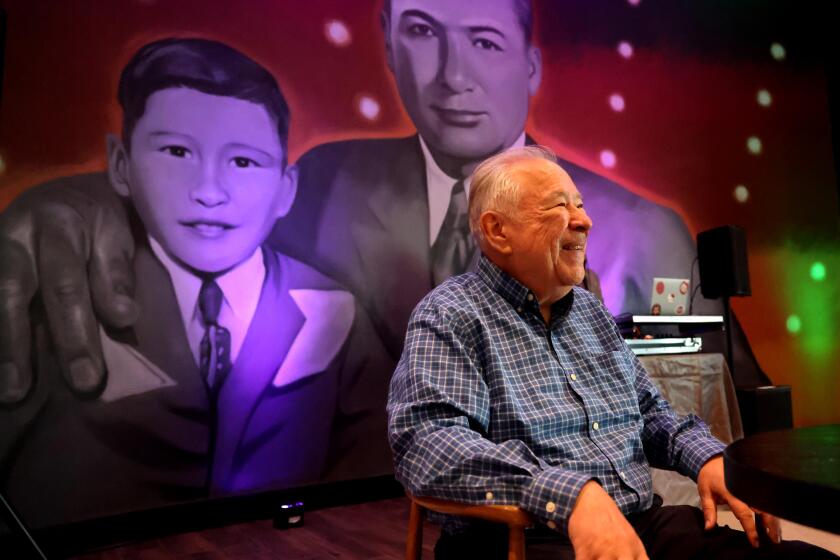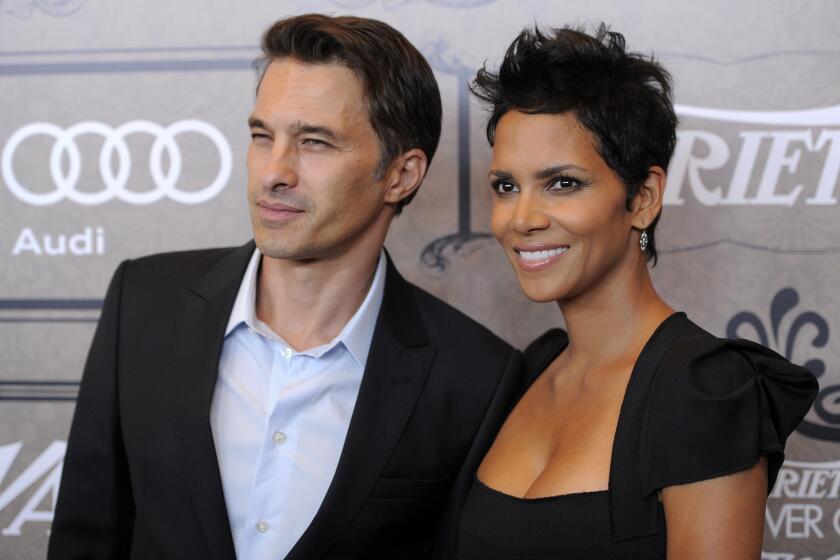Bob Steele; Prolific Star of Dozens of Western Films
Bob Steele, the prolific star of dozens of Western films that could most charitably be described as economical and who became famous to millions of children through a screen persona that was worthy of his name, died Wednesday.
The star, character actor and bit player seen in nearly 400 movies and television shows was 82 and died at St. Joseph Medical Center in Burbank.
Known in the 1960s as Trooper Duffy in the military TV farce “F Troop,” Steele had been one of “The Three Mesquiteers,” a group of cowboy stars featured in about three dozen pictures between 1935 and 1943. Others who alternated in making up the three heroes in such films as “Powdersmoke Range,” “Riders of the Whistling Range” and “Call of the Mesquiteers” included John Wayne, Bob Livingston, Duncan Reynoldo and Jimmy Dodd.
Because those and other Steele features were made inexpensively, even for Depression times, they were easily affordable to local TV stations who first ventured on the air in the late 1940s. Thus such local late night features as “Triple-Header Movies” on Channel 7 would have announcers intoning several times a week: “And now stay tuned for another action-packed thriller, a Bob Steele Western.”
Born Robert North Bradbury Jr. in Pendleton, Ore., the future Bob Steele was the son of Robert Bradbury Sr., a director of silent films. The younger Steele appeared on stage at 2 and in films at 14 with his twin brother, Bill, in “The Adventures of Bob and Bill,” a series of nature shorts directed by their father.
He continued in films in juvenile parts and by 1927, despite his small stature, was a full-blown cowboy star.
Steele possessed an icy stare with which he froze the bad guys in the black hats and his stern countenance often proved sufficient to run them out of town without the necessity of gunplay.
Although Steele deprecated his acting talents, telling a 1966 interviewer that “I never went for all this hoop-de-do about being an actor and demanding high salaries,” he possessed a talent normally suppressed by the material dealt him.
One exception was the role of Curly in the motion picture production of John Steinbeck’s classic “Of Mice and Men” in 1939. In it he is a sadistic bully who torments a simple-minded giant (Lennie played by Lon Chaney Jr.). Critics called his portrayal powerful; many were astounded that an actor of his limited background could give depth to such a dark and profound role.
He played several other villains in later films, most notably Canino in “The Big Sleep” in 1946. He made his last picture, “Something Big,” in 1971.
Films, no matter how inconsequential, had been good to him.
“When a lot of ‘em (actors) were starving, I was content to do bit parts just to be active. . . ,” he said in 1966. “Why disintegrate because of pride?”
More to Read
Only good movies
Get the Indie Focus newsletter, Mark Olsen's weekly guide to the world of cinema.
You may occasionally receive promotional content from the Los Angeles Times.










